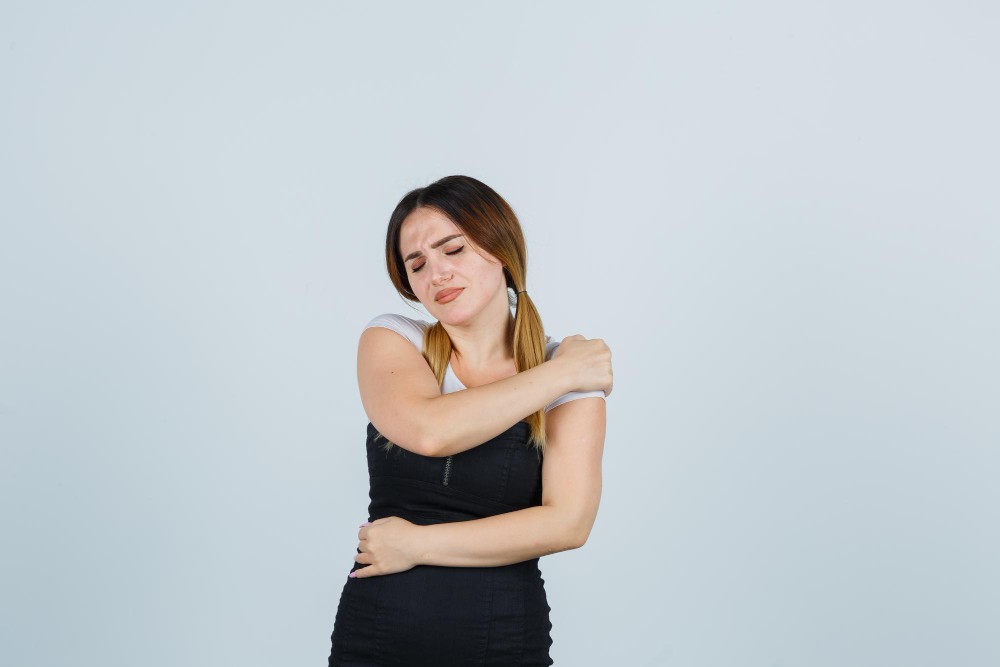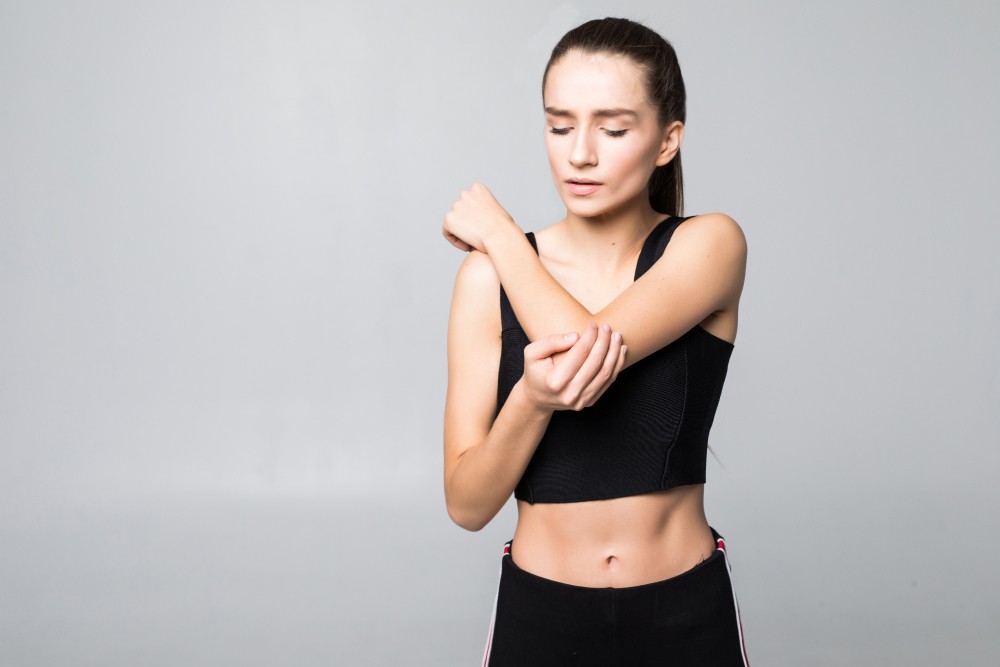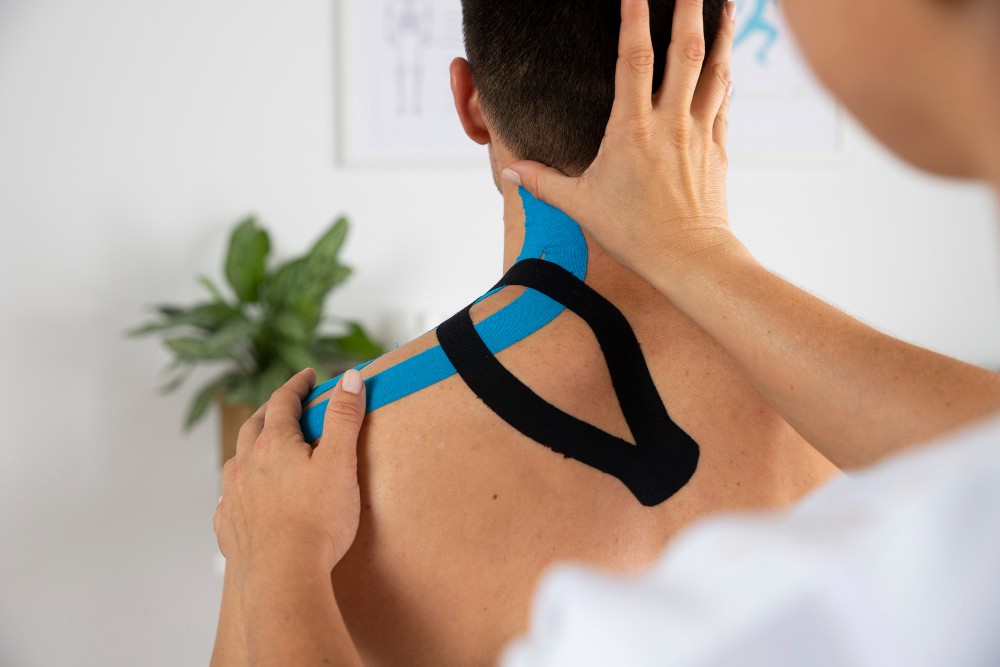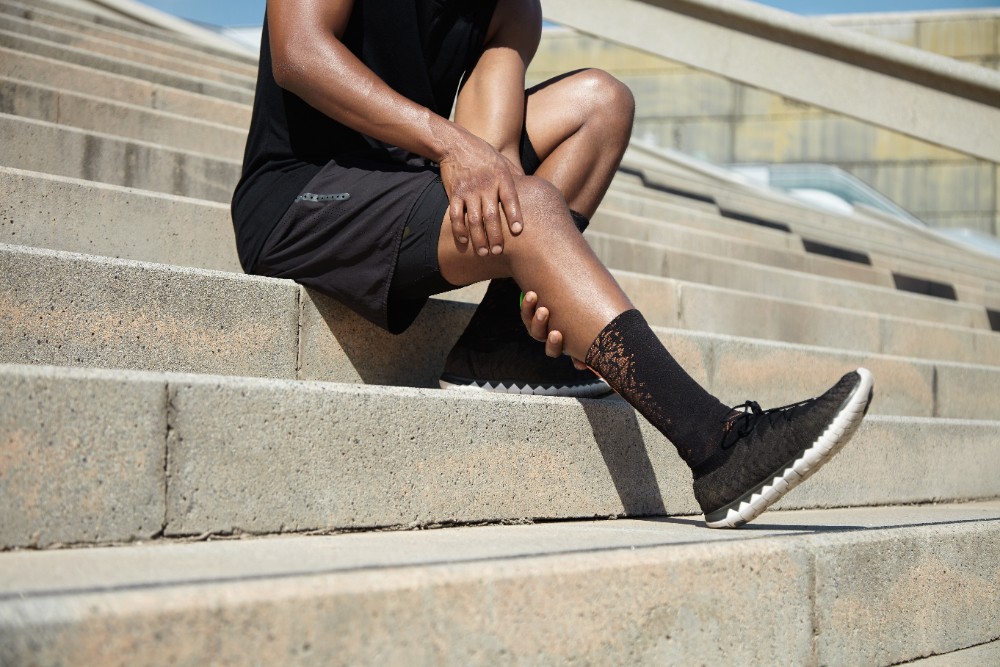Pound fit is an energetic cardio workout that incorporates tools similar to drumsticks and a mat. It combines movements from yoga, drumming, and cardio, all set to lively music. This activity is a great option for those who enjoy cardio in a high-energy, upbeat environment.
However, like any physical activity, pound fit carries the risk of injury, one of which is a torn shoulder muscle (rotator cuff tear). What exactly is a rotator cuff tear, and how should it be treated? Read on to find out more.
What is Rotator Cuff Tear?
The human shoulder is made up of three bones: the upper arm bone, shoulder blade, and collarbone. The rotator cuff is a group of four tendons that secure the upper arm bone, allowing it to move freely.
When the rotator cuff is injured, you may experience difficulty performing simple movements, like lifting a glass or rotating your shoulder. The pain often feels like a deep ache in the shoulder and tends to worsen at night.
Rotator cuff injuries are more common as people age. They can also occur in individuals who frequently perform repetitive shoulder motions, such as carpenters, window washers, or athletes involved in sports like tennis and baseball. Additionally, falls or lifting heavy objects can lead to this type of injury.
Rotator cuff tears are categorized by their severity, and there are two types:
- Partial tear: This occurs when the muscles forming the rotator cuff become damaged or worn down. While the tendon remains attached to the arm bone, there may still be some pain and limited shoulder movement.
- Complete tear: In this case, the tendon detaches completely from the bone. A complete tear usually causes significant pain and weakness, making it difficult to move the shoulder and arm.
Treating Rotator Cuff Tear
A torn rotator cuff can happen during pound fit exercises, as these workouts involve dynamic movements using drumsticks, known as Ripstix, that are performed to the rhythm of music. These movements engage the arm, shoulder, and core muscles. When performed repetitively or incorrectly, or without proper warm-up, there is a risk of shoulder muscle tears.
Some treatment options for rotator cuff tears include:
Therapy
For mild shoulder injuries, relieving pain may involve resting the muscles, applying cold compresses, using arm slings, and undergoing physical therapy.
The therapy will focus on the affected area to help restore flexibility and strength. Physical therapy is often part of the recovery process after rotator cuff surgery.
Steroid Injections
If pain from a shoulder tear affects daily activities, your doctor may suggest steroid injections to reduce inflammation and relieve discomfort.
Surgery
In severe cases, surgical options such as tendon repair, tendon transfer, or shoulder replacement may be necessary.
Tips for Preventing Rotator Cuff Tears Due to Pound Fit
To avoid rotator cuff injuries while doing pound fit, it is important to keep the muscles and tendons flexible throughout the workout. Be sure to properly warm up with stretches focused on the shoulder area. During the exercise, maintain correct posture and form to minimize the risk of long-term shoulder damage.
If you experience shoulder pain after exercising, do not ignore it. Avoid heavy lifting or movements that may strain the shoulder, such as shrugging. If the pain persists for several days, consult a doctor. You can also use the consultation feature on the Ai Care app, available for download on the App Store and Play Store.
Looking for more information about other diseases? Click here!
- dr Nadia Opmalina
Poundfit.com. About Pound Fit. Available from: https://poundfit.com/about/
Poundfit.com. Pound 101: Ripstix. Available from: https://poundfit.com/poundfit_blog/pound-101-ripstix/
Cleveland Clinic. Rotator Cuff Tear. Available from: https://my.clevelandclinic.org/health/diseases/8291-rotator-cuff-tear
Mayo Clinic. Rotator Cuff Injury. Available from: https://www.mayoclinic.org/diseases-conditions/rotator-cuff-injury/symptoms-causes/syc-20350225
Gatta, F. (2024). Rotator Cuff Tear. Available from: https://www.webmd.com/pain-management/rotator-cuff-tear
Roberts, T. How to Prevent Rotator Cuff Tears. Available from: https://www.nyspine.com/blog/how-to-prevent-rotator-cuff-tears/












